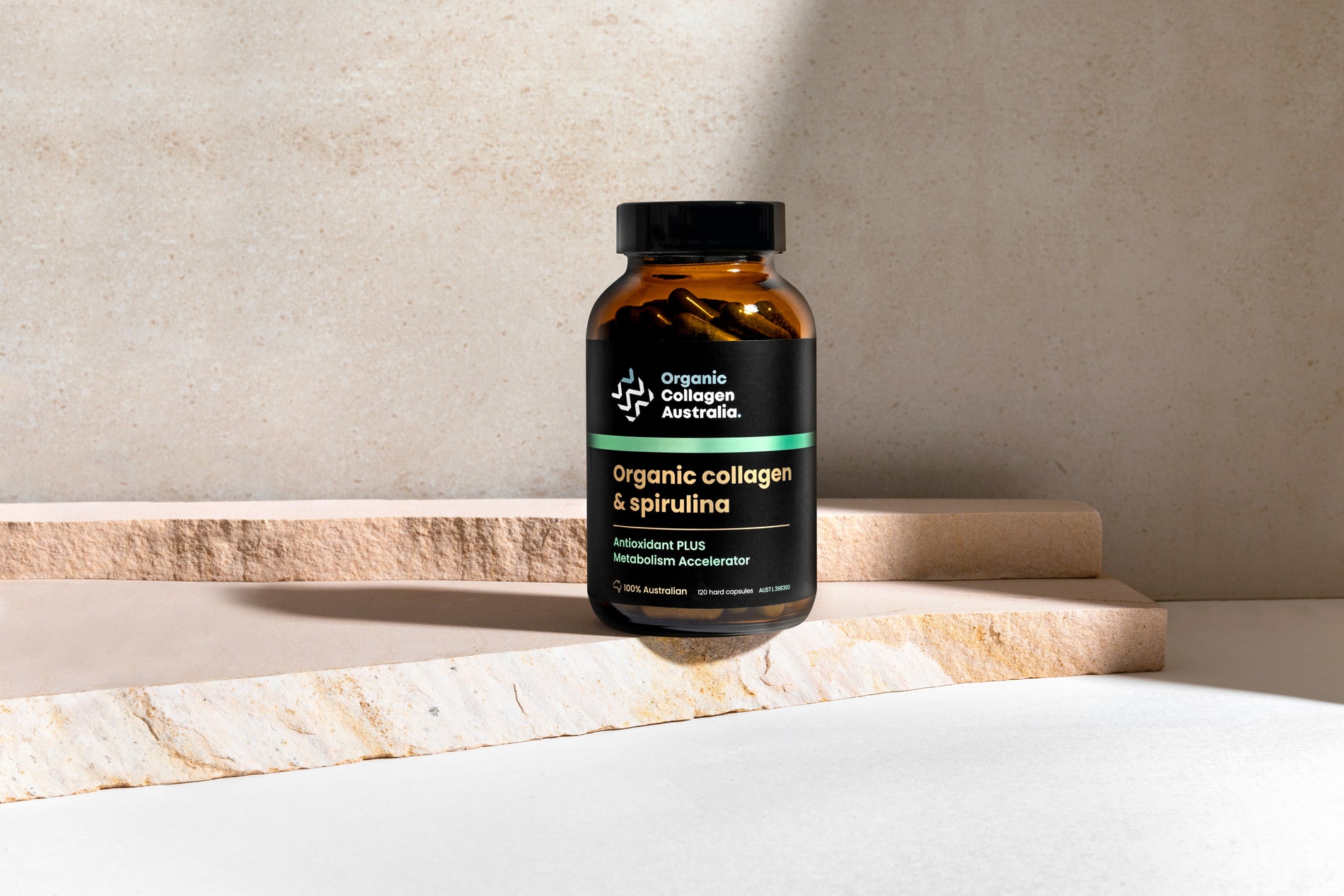Boosting your immunity during the winter is super important to help your body fend off common illnesses such as colds and the flu. While healthy diet, hydration, exercise and stress management are essential, collagen and spirulina are two dietary supplements that can support your immune system greatly during the winter months.
COLLAGEN is a protein that plays a crucial role in the health and maintenance of various tissues in the body, including the skin, bones, joints and organs. While collagen itself is not directly involved in boosting the immune system, it can indirectly support overall immune health through its effects on other areas of the body. Here's how collagen may contribute to immune system support during winter:
- Skin health: Collagen is a major component of the skin and helps maintain its strength and elasticity. During the winter months, when the air is dry and cold, the skin can become dry and prone to cracking. Damaged skin can compromise the body's defence against pathogens. By supporting skin health and integrity, collagen may help prevent the entry of harmful microorganisms and maintain a strong barrier against infections.
- Gut health: A significant portion of the immune system resides in the gut. Collagen contains amino acids, such as glutamine and glycine, which are beneficial for gut health. Glutamine helps maintain the integrity of the intestinal lining, preventing the leakage of harmful substances into the bloodstream. Glycine supports the production of stomach acid and aids in digestion. By promoting a healthy gut, collagen indirectly supports immune function.
- Inflammation modulation: Collagen has been studied for its anti-inflammatory properties. Chronic inflammation can impair immune function and increase the risk of certain diseases. By reducing inflammation, collagen may help promote a balanced immune response.
SPIRULINA is often touted for its potential immune-boosting properties, which can be beneficial during the winter months when the risk of colds, flu and other respiratory infections tends to be higher. Here's how spirulina may potentially benefit the immune system during winter:
- Antioxidant content: Spirulina is rich in antioxidants, including phycocyanin, beta-carotene, and vitamin E. These antioxidants help neutralise harmful free radicals in the body, reducing oxidative stress and inflammation. By reducing oxidative stress, spirulina may indirectly support the immune system, as chronic inflammation can weaken immune function.
- Anti-inflammatory properties: Spirulina contains anti-inflammatory compounds, such as phycocyanin, chlorophyll, and gamma-linolenic acid (GLA). Inflammation is a normal immune response, but chronic inflammation can impair immune function. By reducing inflammation, spirulina may help support a balanced immune response.
- Nutrient profile: Spirulina is a nutrient-dense food, containing a variety of vitamins, minerals, and phytonutrients. These nutrients play essential roles in supporting the immune system. For example, vitamin C and zinc are known to enhance immune function and may help reduce the duration and severity of colds.
- Enhanced antibody production: Some studies suggest that spirulina may stimulate the production of antibodies, which are proteins produced by the immune system to target and neutralise pathogens. By supporting antibody production, spirulina may help enhance the body's defence against infections.
Organic Collagen Australia has worked hard to create a supplement with this great combination of Spirulina and Collagen: ANTIOXIDANT PLUS METABOLISM ACCELERATOR.
Organic Collagen Australia’s collagen and spirulina capsules contain a mix of collagen derived from Australian pasture-raised and grass-fed Certified Organic cattle and Australian spirulina.
Read more about OCA Spirulina with Organic Collagen Supplement:
https://organiccollagenaustralia.com.au/collections/shop-all/products/organic-collagen-spirulina?variant=42293670543523


